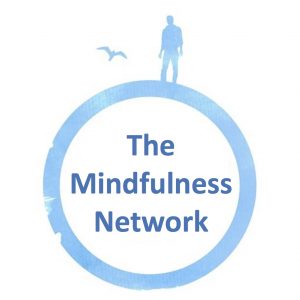
– written by Sarah Millband
Understanding Safeguarding in the Context of Mindfulness-Based Teaching, Training and Supervision:
Our New Policy and March 2020 CPPD Training Workshop

Safeguarding is all about protecting children and adults from harm, abuse or neglect and educating those around them to recognise the signs and dangers. The Mindfulness Network has just launched its new Safeguarding Policy and Procedures and we’re making a commitment to creating a culture within our organisation that prioritises safety for everyone.
The Mindfulness Network is regulated by the Charity Commission and we’ve been developing our Safeguarding Policy and Procedures in line with the Commission’s updated safeguarding guidance, which has been written to help charities and their trustees to better understand the legal duties connected with protecting people (https://www.gov.uk/guidance/safeguarding-duties-for-charity-trustees).
As mindfulness teachers, trainers and supervisors, we’re aware of the need for conducting an orientation and assessment process with potential participants so that we can ensure that the journey through an eight-week course will be a safe and wise choice for each person. We also know that creating a learning environment that allows participants to feel a simultaneous sense of safety and vulnerability is part of a set of core skills needed by mindfulness-based teachers (as seen in Domains 2 and 6 of the Mindfulness-based Interventions Teaching Assessment Criteria https://www.bangor.ac.uk/mindfulness/MBITAC.php.en). As we orient potential participants to the journey ahead and in co-create the group learning environment, we’re attending to safety as it relates to the internal world of each participant and to the world that we’re creating together in the group.
Some of the people taking part in a mindfulness course – and those associated with them – may be vulnerable in other ways, including by being at risk of experiencing harm, abuse and neglect. Good Practice in Safeguarding requires us to grow our awareness of safety in the wider world in which participants – and those in connection with them – are living. It requires us to understand the responsibility we have as teachers and supervisors to take action when we’re concerned about harm, abuse and neglect.
Safeguarding is covered by both UK and international legislation. Although we don’t need to be experts in the details of these laws, we do need to know that we have a Common Law Duty of Care to anyone we come into contact with who is vulnerable and at risk of harm, abuse and neglect. In fact, this Duty of Care is something that we all have to each other as human beings, irrespective of our professional role.
The British Association of Mindfulness-based Approaches (BAMBA) sets out the requirements for teachers, trainers and supervisors to adhere to the ethical framework appropriate to their professional background and working context. For those who belong to regulatory professional bodies, this will mean working in accordance with the Safeguarding Policy of this organisation (e.g., for psychotherapists who are members of UKCP this will be https://www.psychotherapy.org.uk/wp-content/uploads/2018/07/UKCP-Safeguarding-guidelines-2018-5.pdf) For those who teach in community settings and who aren’t members of a regulatory body, the process for taking action in relation to Safeguarding concerns may seem less clear. We’re hopeful that raising awareness of Safeguarding in mindfulness-based teaching will help both teachers and supervisors in these sorts of settings to know how to raise and report concerns appropriately. BAMBA has recently produced a Code of Conduct that includes a section on managing risk.
Whilst we’ve been developing our Policy and Procedures in line with the requirements of the Charity Commission, the Mindfulness Network sees Safeguarding as something that is deeply rooted in Good Practice and the ethical principles at the heart of mindfulness-based approaches. The introduction of our new processes for Raising and Reporting Concerns has led to some deep reflecting on themes of empowerment, the importance of respecting other people’s life choices and questions about policing people. By raising awareness amongst our supervisors, teachers and trainers, the Mindfulness Network has been keen to highlight the role of Safeguarding in preventing harm from occurring. In many situations, raising awareness of the signs and symptoms of harm, abuse and neglect can lead to additional support and resources being made available to those who may be at risk.
We’ve also been asking our teachers, trainers and supervisors to share examples of situations where they’ve come across Safeguarding issues and some of their experiences are included below. Perhaps you might like to consider if there is something to be concerned about in each example. remembering the Duty of Care, you can then reflect on what action, if any, you might take as a result:
“I was teaching an evening course for the general public in my local community centre. I nipped to the loo before starting the session and I overheard a 16-year old girl telling a friend that her older brother was going to kill her, because she’d been seen kissing a boy in the street – she was very distressed…”
“I was teaching at a Parenting Project and the parents of an 18-month old with additional needs told me that they were finding looking after their toddler very challenging and that the only way to unwind was by smoking cannabis everyday…”
“I was teaching mindfulness to a group of adult carers who were all looking after someone with dementia. In week four, during the Unpleasant Events Calendar exercise, one of the carers said that an unpleasant event from the week was being slapped by the family member they care for…”
“I was supervising a new teacher – I didn’t know them well and we were early in our supervision relationship. They came to a session with scratches and scrapes on their face…”
A key aspect of Good Practice in Safeguarding is attending training every three years, so that whether we’re teaching, training or supervising, we can ensure that our skills and knowledge in Safeguarding are up to date. As part of our commitment to creating a culture within our organisation that prioritises safety for everyone, the Mindfulness Network has designed a Safeguarding Workshop which is being offered on 20th March 2020, as part of our CPPD programme. This Workshop has been designed especially to meet the learning needs of mindfulness-based teachers, trainers and supervisors – you can find out more and apply here: https://www.teach-mindfulness.org/course-information/?id=706.
There are several other ways of accessing training in Safeguarding:
- the Social Care Institute for Excellence offers on-line courses (https://www.scie.org.uk/e-learning/safeguarding-adults)
- if you are a member of a professional body (e.g., UKCP, BACP, RCN) you can contact them to find out about whether they are offering training in Safeguarding
- if you are a member of a voluntary organisation, you can contact your local County Voluntary Council (CVC) or Voluntary Action Centre to find out about their training courses (e.g., in Devon this would be: http://www.devonva.org/)
- you can contact your local social services department (e.g., in Swansea this would be: https://www.swansea.gov.uk/contactsocialservices)
- you can look for events local to you that are part of National Safeguarding Awareness Week (e.g., https://www.safeguardingadultsyork.org.uk/news/2019-safeguarding-week/)
We hope that this blog post has helped you to reflect on your own practice in relation to Safeguarding. If after reading it you recognise that you need to take action because you are concerned about a child, then you can contact your local social services office or call the Police. You may also contact https://www.nspcc.org.uk/what-you-can-do/report-abuse/.
Or if you have concerns about an adult, you can contact your local social services office or call the Police. You may also contact https://www.ageuk.org.uk/.
Sarah Millband is a mindfulness-based supervisor and retreat leader for the Mindfulness Network.
When: 28 Mar 2020
Where: Greencoat Place, London
Tutor: Sarah Millband
This workshop is being offered to share Good Practice in Safeguarding and to raise awareness of our legal responsibilities to ensure that in offering mindfulness-based courses, we’re attending comprehensively to the safety of the people we are working with. Please click HERE to find out more and to apply.




